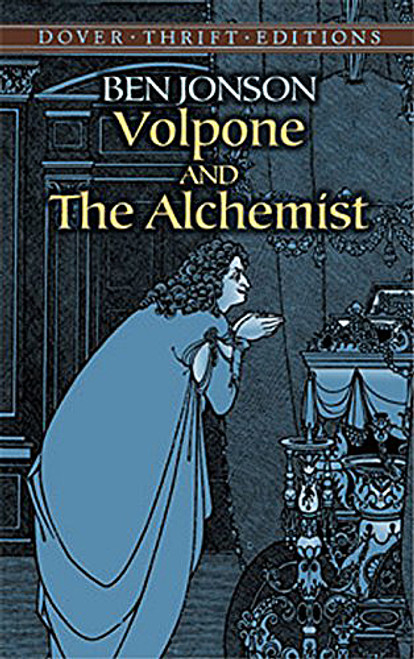Much-studied and frequently performed, these comedies by the great Elizabethan playwright Ben Jonson satirize the greed, mendacity, gullibility, and pretension of seventeenth-century London society. Both plays abound in colorful characters, ingenious plotting, biting wit, and sharp insight into human nature.
In Volpone (1605), a crafty rich man attempts to augment his wealth by feigning a mortal illness. His wealthy neighbors, spying the opportunity for an inheritance, vie with each other in courting the “dying” man’s favor. The Alchemist (1610) comprises a likewise avaricious cast, headed by a butler and prostitute who join forces with a swindler claiming to possess the philosopher's stone. The trio hosts a parade of eager victims whose hypocrisy and greed place them on a moral footing similar to that of the tricksters. Both plays offer sparkling examples of their author's novel approach to satire and his distinctive blend of savagery, humor, moralism, and a powerful sense of the absurd.
About the Author
Benjamin Jonson (1572 – 1637) was an English playwright and poet, whose artistry exerted a lasting impact upon English poetry and stage comedy. He popularized the comedy of humors. He is best known for the satirical plays Every Man in His Humour (1598), Volpone, or The Fox (c. 1606), The Alchemist (1610) and Bartholomew Fair (1614) and for his lyric and epigrammatic poetry.




